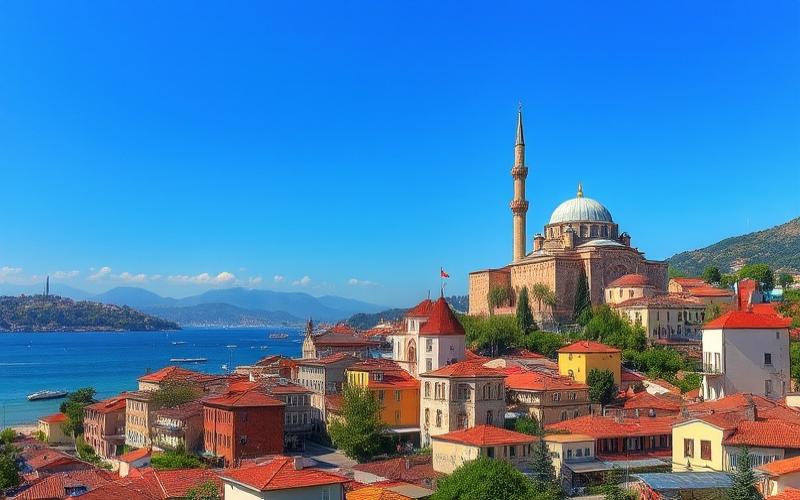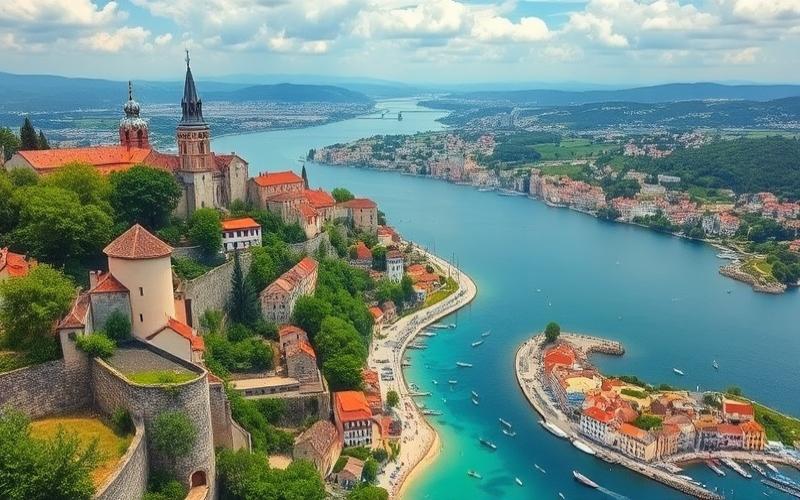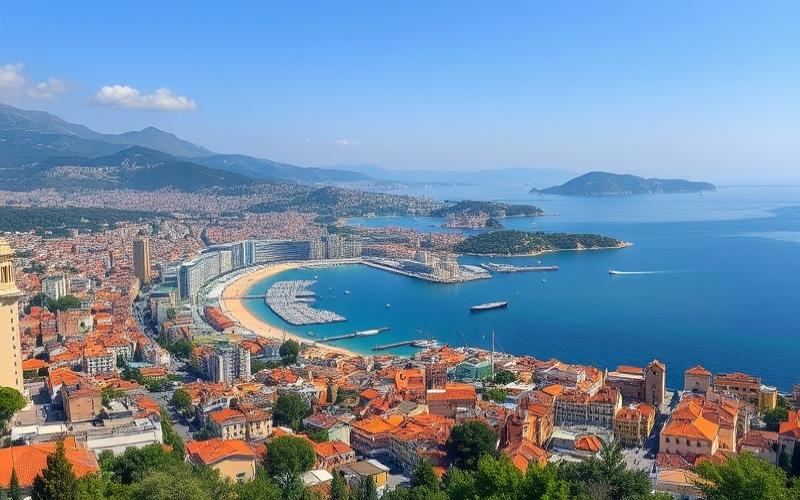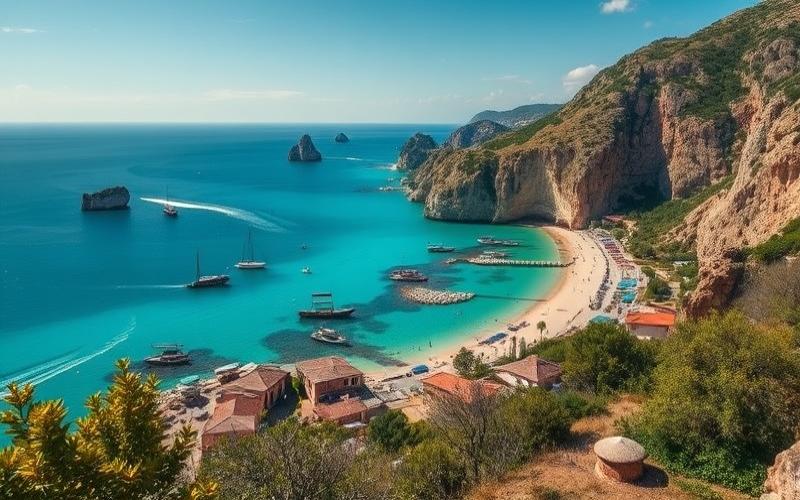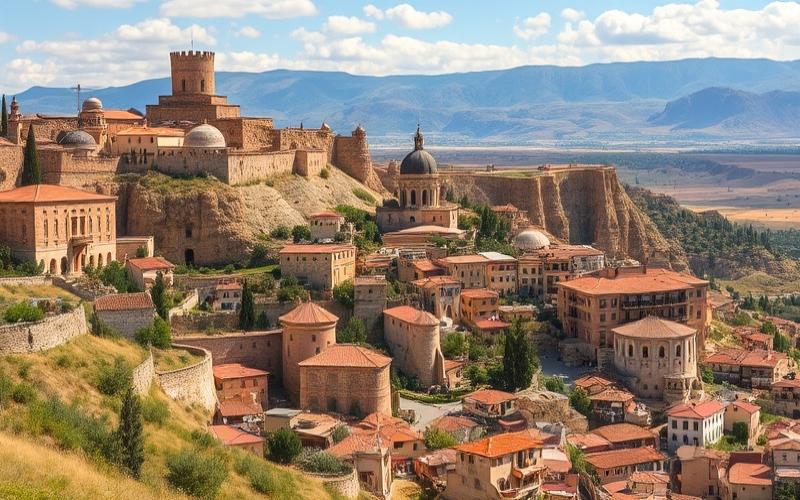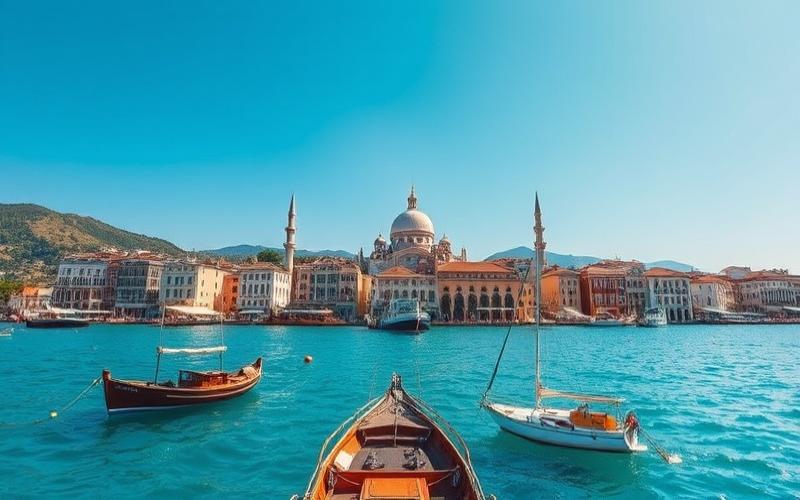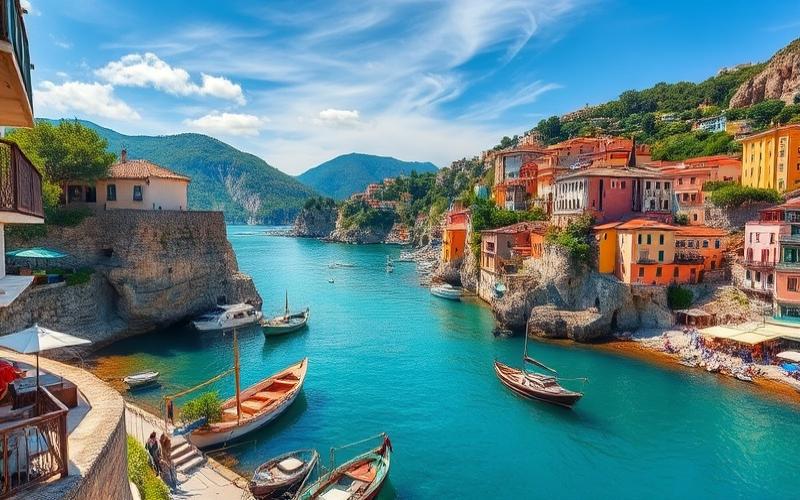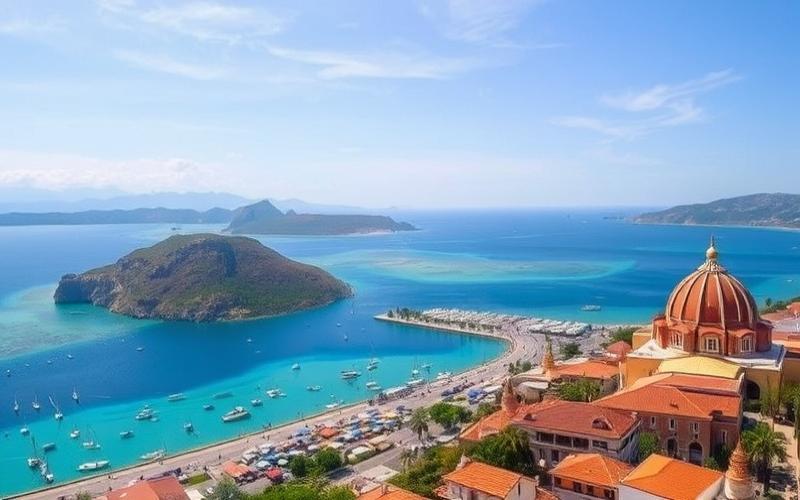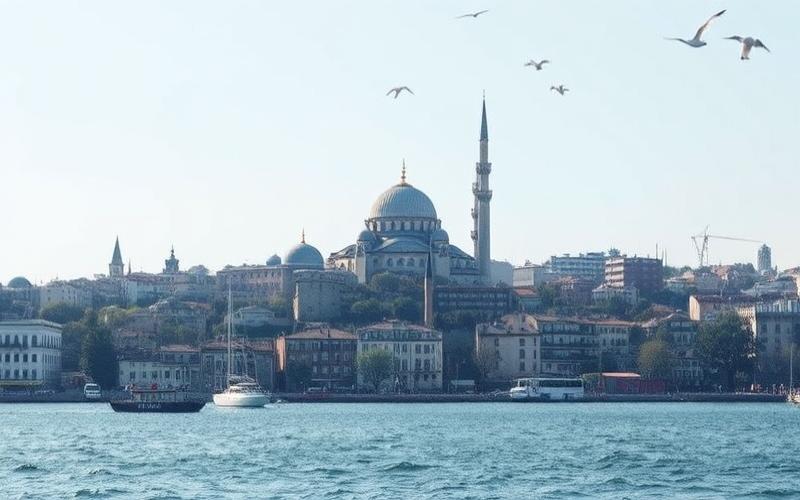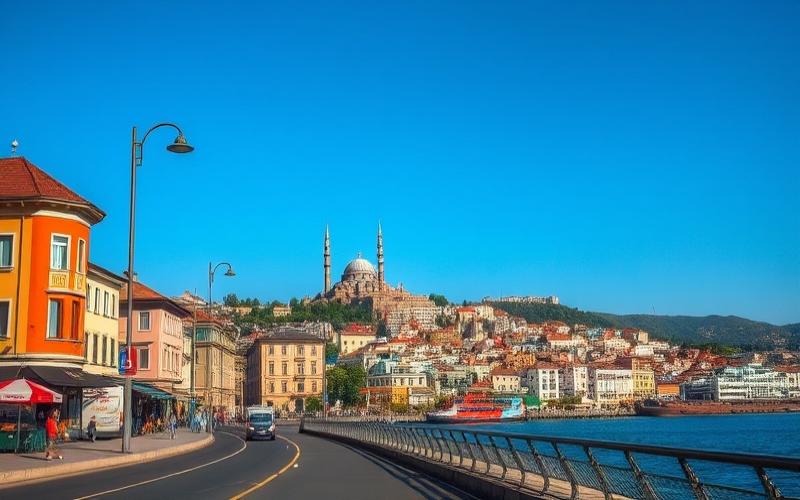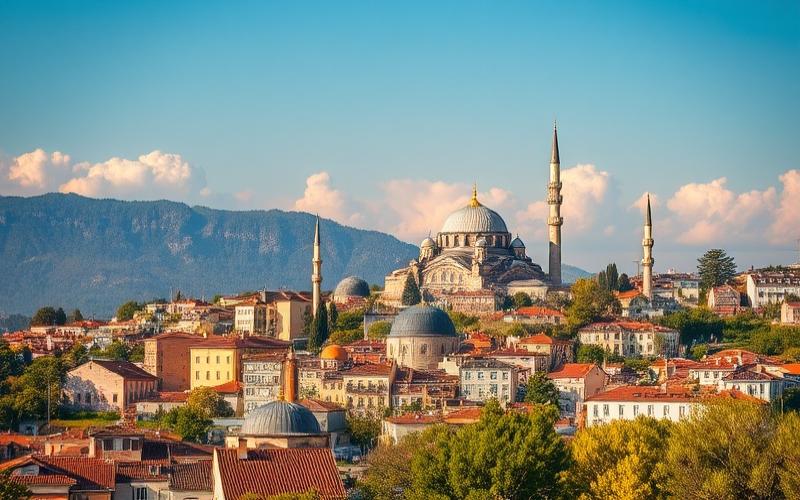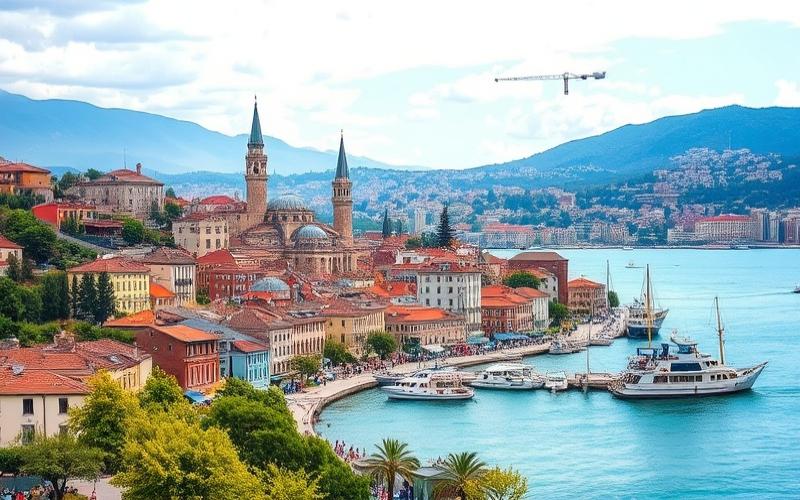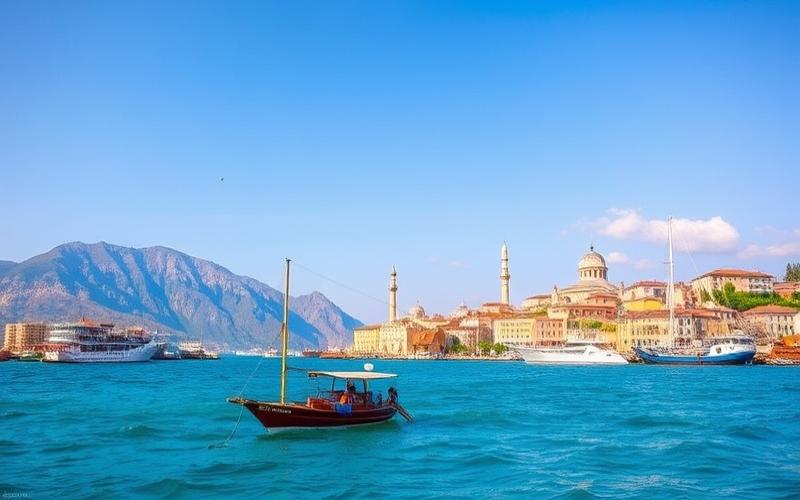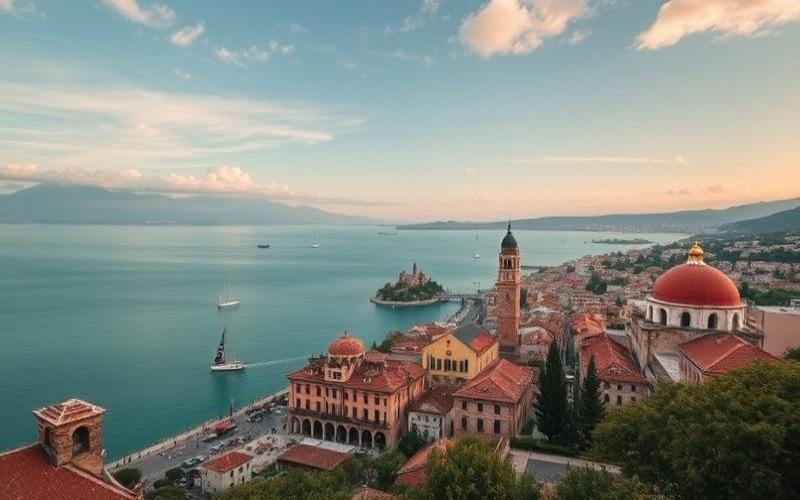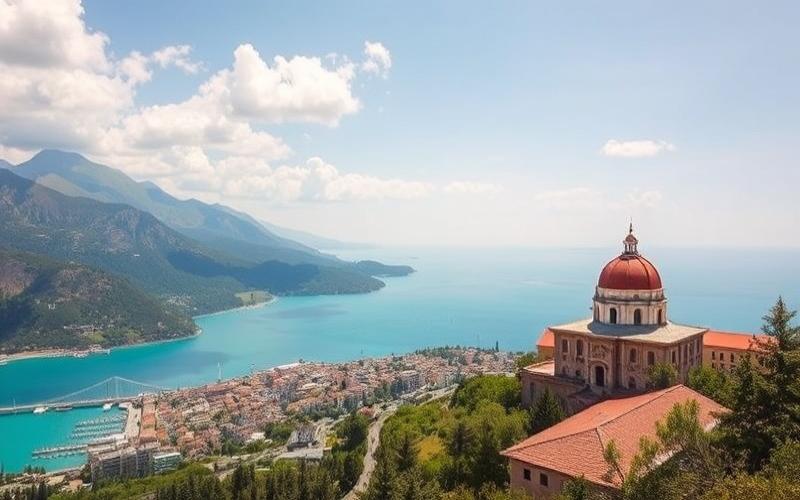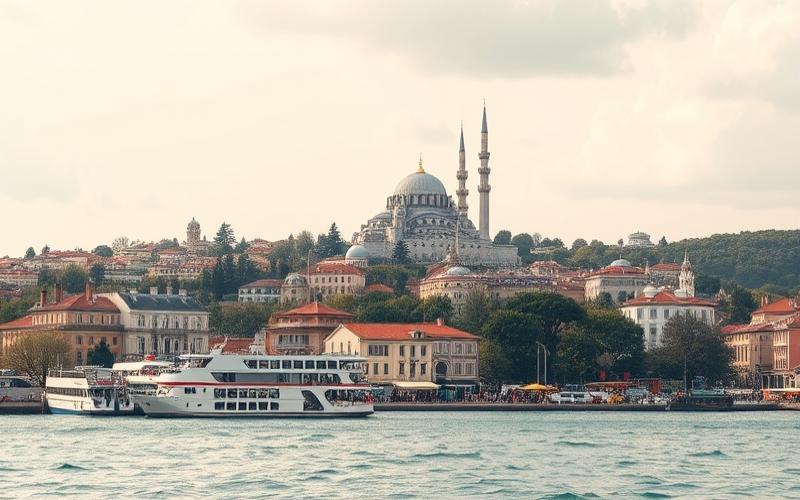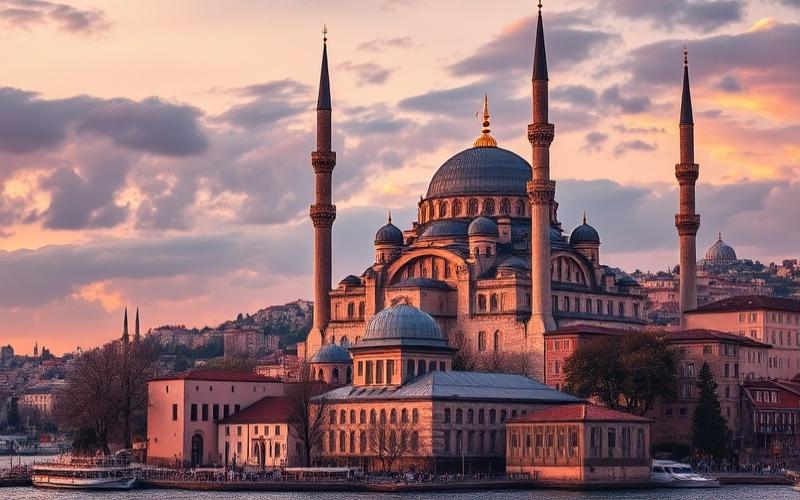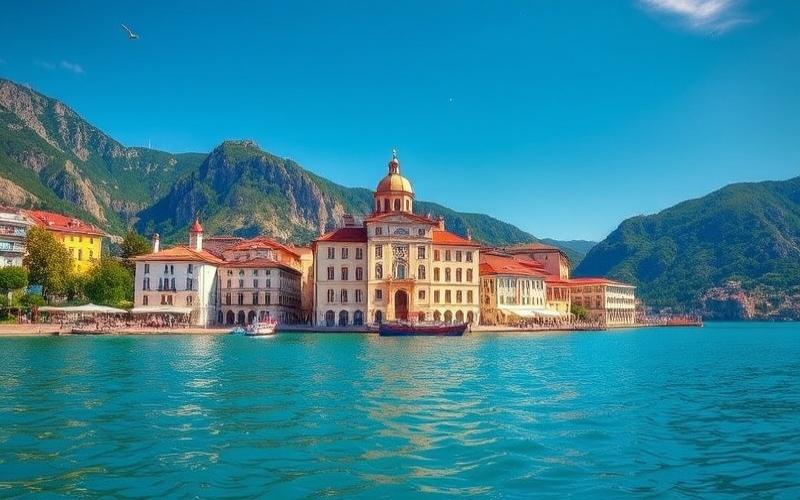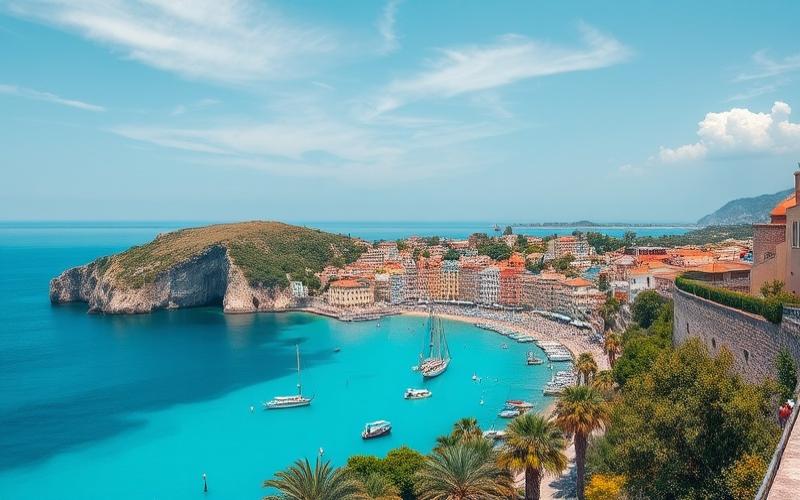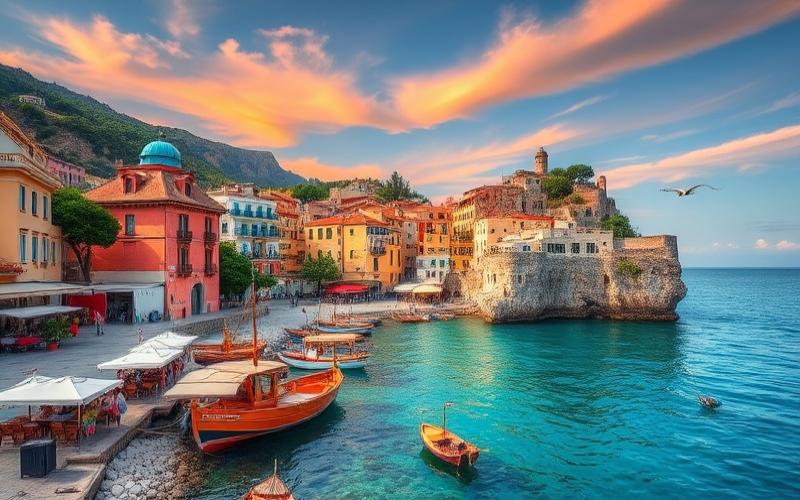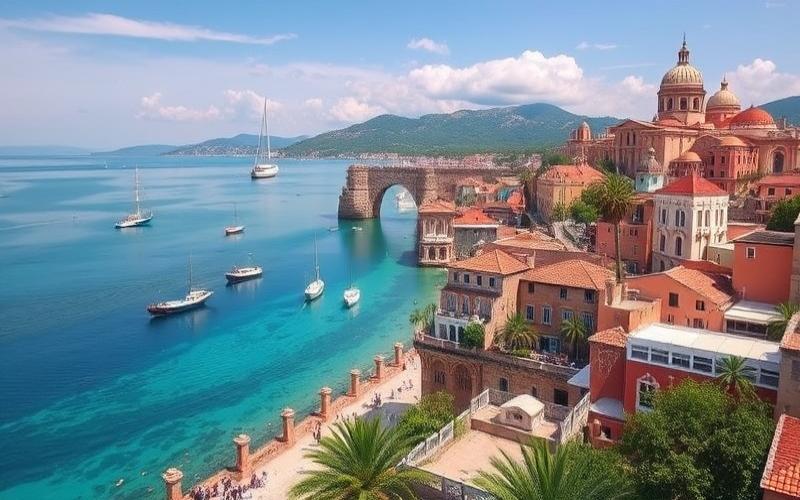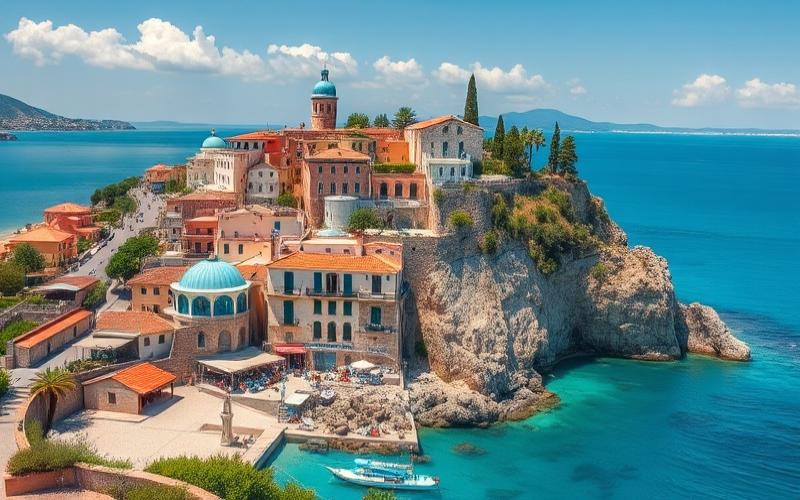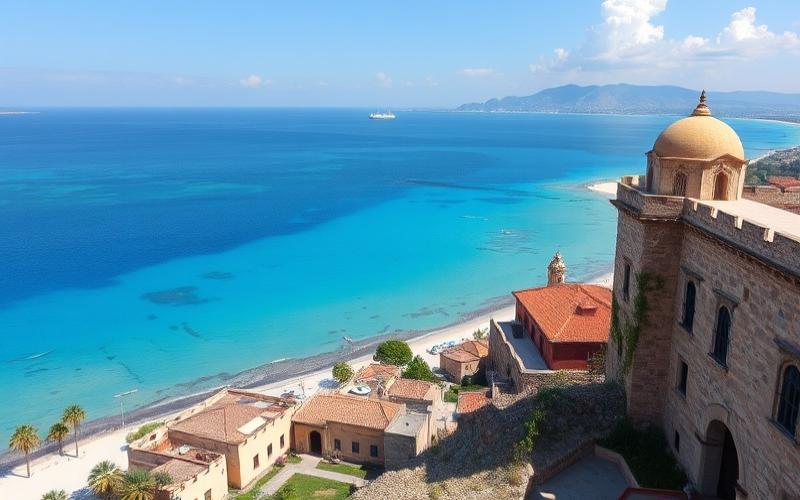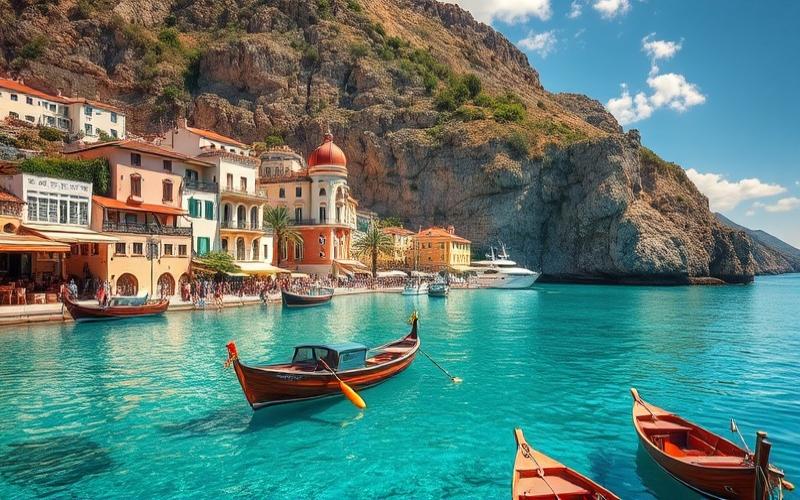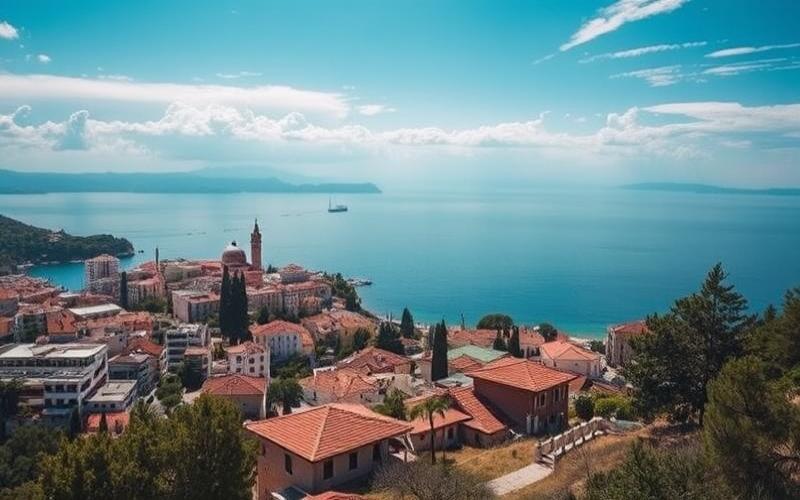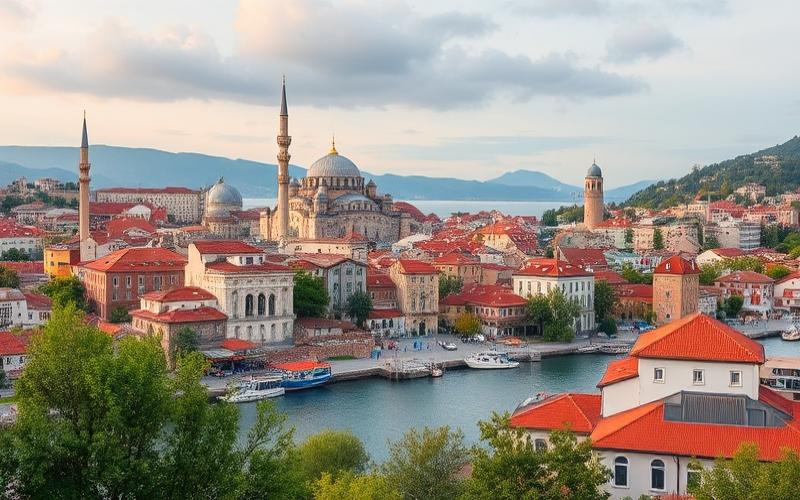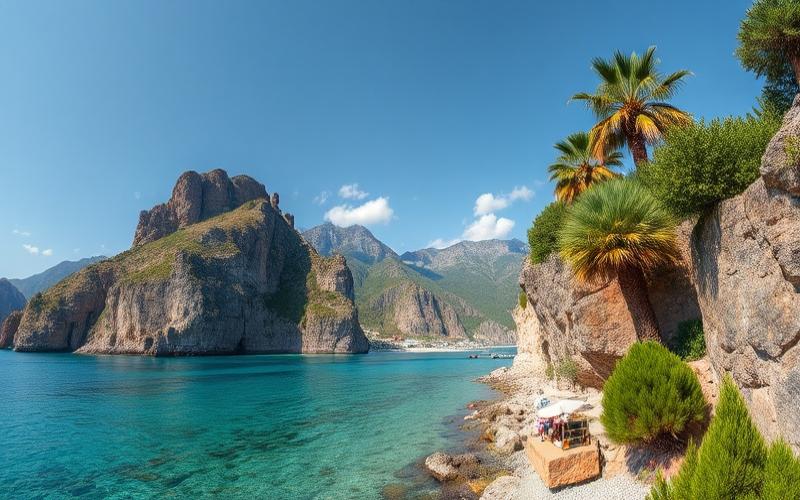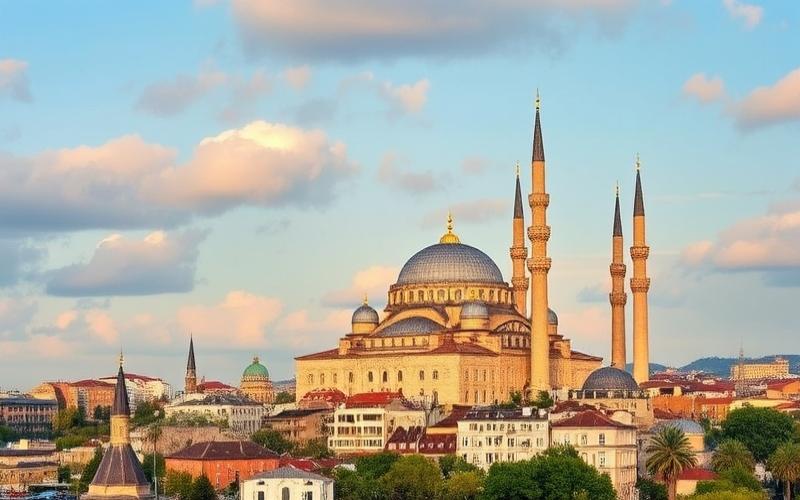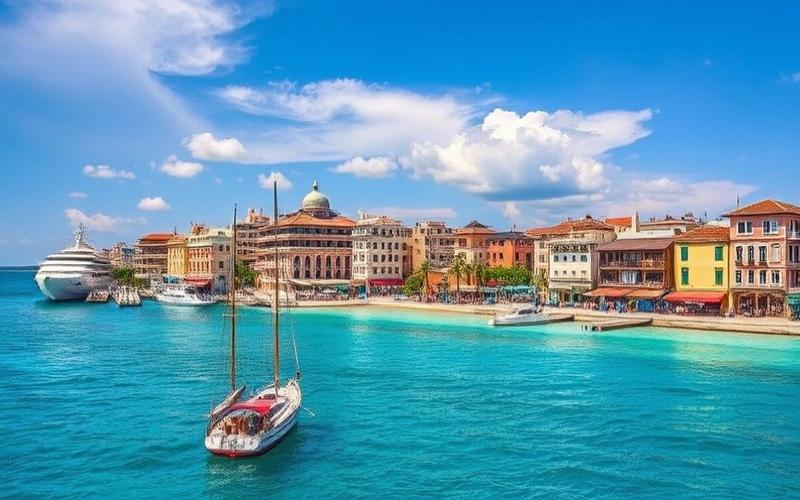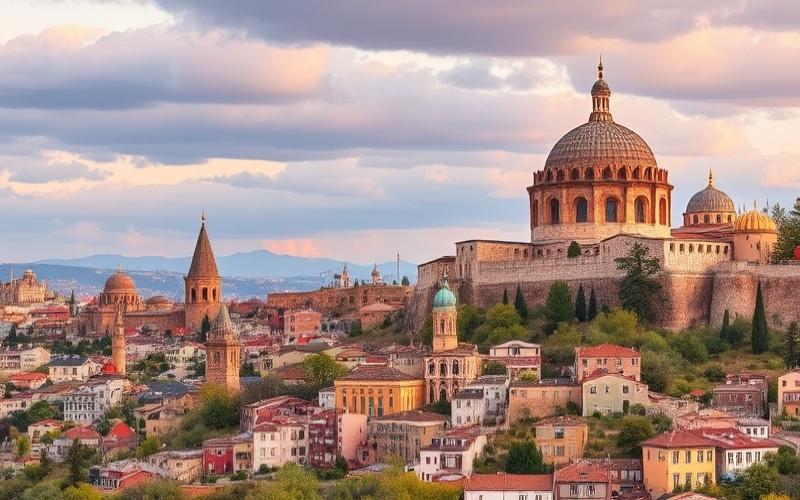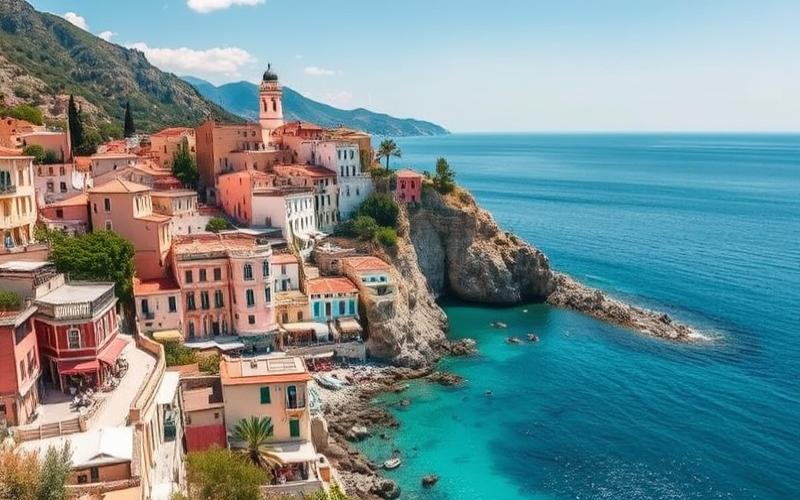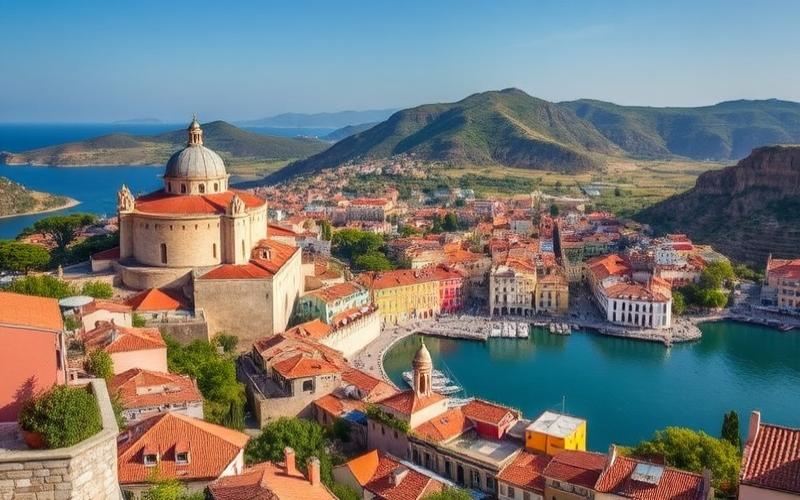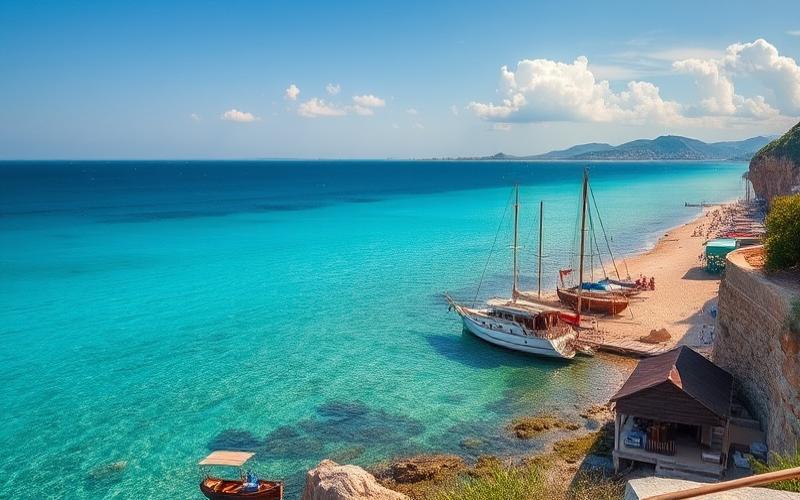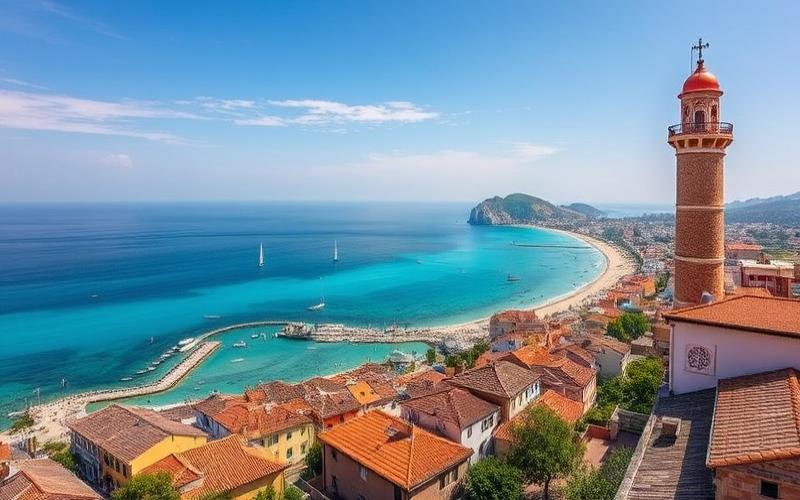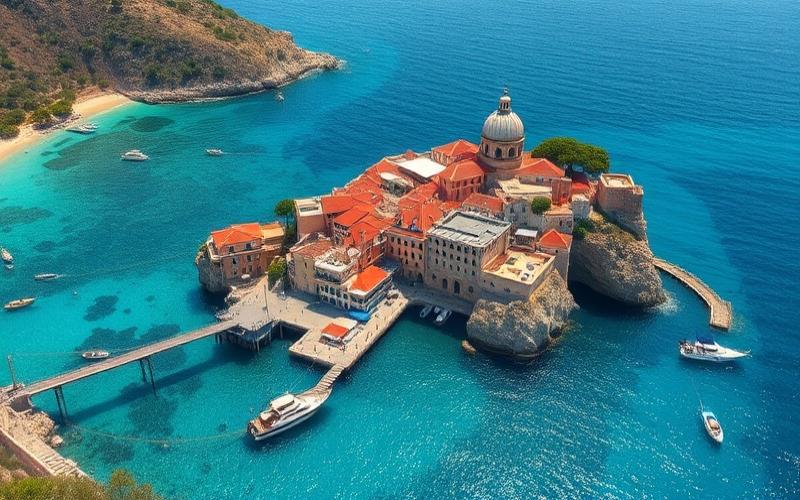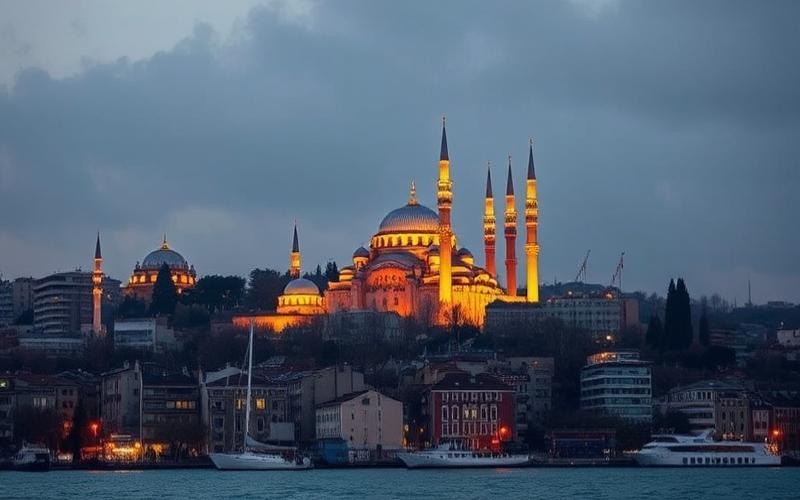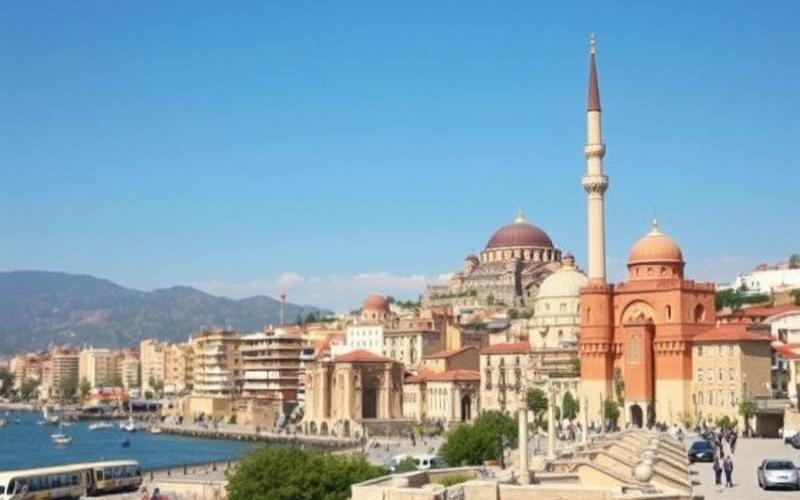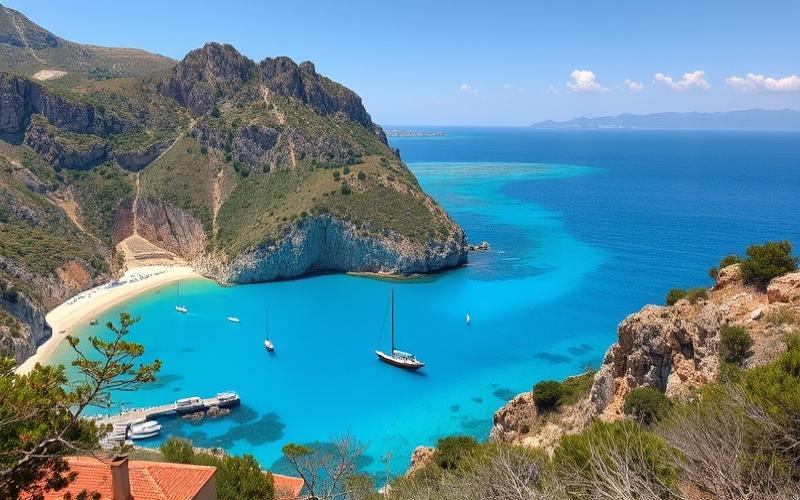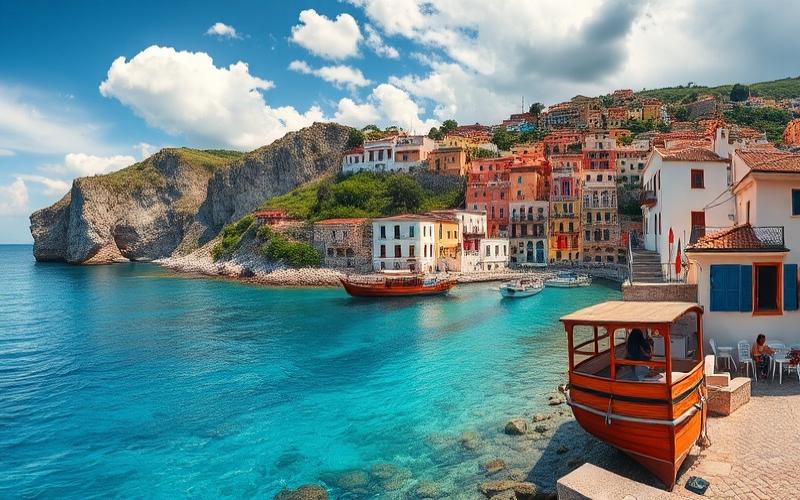
 Published on and written by Cyril Jarnias
Published on and written by Cyril Jarnias
Turkey, a cultural crossroads between East and West, offers a rich mosaic of religious traditions that reflect its unique position within world history.
This predominantly Muslim country is also home to a diversity of religious communities such as Christians and Jews, each having contributed to the country’s social and historical fabric.
While exploring cities like Istanbul or Izmir, visitors discover sacred heritage with iconic sites such as the majestic Blue Mosque, Byzantine churches adorned with mosaics, and historic synagogues testifying to centuries of coexistence.
Exploring places of worship in Turkey not only provides better understanding of current spiritual dynamics, but also allows appreciation of the incredible multicultural heritage that shapes this fascinating country.
Overview of Places of Worship in Turkey
Turkey stands out for its remarkable diversity of places of worship, reflecting a history shaped by multiple civilizations and religions.
Major Religions and Places of Worship
| Religion | Iconic Sites | Main Locations | Status and Attendance |
|---|---|---|---|
| Islam | Blue Mosque, Süleymaniye Mosque | Istanbul, Ankara, major cities | Majority, highly attended |
| Christianity | Hagia Sophia, Armenian churches, St. Anthony’s Church | Istanbul, Eastern Anatolia | Minority, tourists and local communities |
| Judaism | Neve Shalom, Ahrida Synagogues | Istanbul, Izmir | Small communities, controlled access |
| Others (Yazidis, Alevis, Baha’is) | Cemevi, Yazidi temples, Baha’i sites | Anatolia, specific regions | Community practices |
Iconic Mosques
- Blue Mosque (Sultan Ahmet Camii)
Built between 1609 and 1616, it’s famous for its six minarets and blue Iznik tiles. It was the historical starting point for the pilgrimage to Mecca and remains a symbol of classical Ottoman architecture and Istanbul’s religious life. - Süleymaniye Mosque
Masterpiece of architect Sinan, this mosque (16th century) dominates the city and embodies the refinement of the Ottoman era, both in its size and architectural harmony.
Christian Churches
- Hagia Sophia
Built in 537 as a Byzantine basilica, converted to a mosque in 1453, then to a museum and again to a mosque in 2020, it remains a landmark monument of Turkish religious heritage, symbolizing the encounter between Christianity and Islam. - Armenian churches and St. Anthony’s Church
Armenian churches, particularly in Istanbul and eastern Turkey, testify to this community’s centuries-long presence. St. Anthony’s Church, Istanbul’s largest Catholic church, offers masses in several languages and welcomes many visitors.
Jewish Synagogues
Neve Shalom (Istanbul)
Turkey’s largest Sephardic synagogue, inaugurated in 1951, it remains the center of Istanbul’s Judaism. Historic synagogues survive in Izmir, Istanbul and some other cities, often accessible only by request due to security reasons.
Worship Places of Smaller Communities
- Yazidis
Some temples and sanctuaries remain in the southeast, despite this community’s mass exile. - Alevis
The cemevi (gathering houses) constitute central places for Alevi practice, especially in Anatolia. - Baha’is
The Baha’i community, although discreet, has prayer places in some major cities.
Recent Statistics on Religious Practice
- According to 2016 estimates, approximately 82% of Turkey’s population identifies as Muslim, 13% with no religious affiliation and 2% Christian. Jews, Yazidis, Baha’is and others represent less than 1% of the total population.
- The mosque network is dense, with over 82,000 mosques distributed throughout the territory, demonstrating Islam’s predominance.
- Churches and synagogues are fewer but maintain a strong symbolic and cultural role, particularly in Istanbul and some historic cities.
The plurality of places of worship in Turkey illustrates the richness and complexity of its religious heritage, while highlighting contemporary dynamics between tradition, diversity and secularism.
Good to Know:
In Turkey, religious diversity is reflected in the variety of places of worship scattered throughout the country, marking the imprint of several religious traditions across centuries. Mosques, like the Blue Mosque and Süleymaniye Mosque in Istanbul, are not only prayer places for Muslims but also represent architectural masterpieces and essential cultural symbols. Christian churches, exemplified by the famous Hagia Sophia basilica – since 2020 again a mosque – and Armenian churches, testify to the rich Christian heritage in Turkey’s history. Synagogues, such as Neve Shalom in Istanbul, recall the historical presence of Jewish communities, despite their reduced numbers today. Temples of Yazidis, Alevis and Baha’is highlight the mosaic of beliefs coexisting in Turkey, although these groups are minorities. Today, approximately 99% of Turkey’s population identifies as Muslim, but attendance at places of worship varies, with a general trend of declining regular religious practice influenced by contemporary social and cultural dynamics.
Established Religious Communities in Turkey
Main Religious Communities in Turkey
| Community | History and Presence | Geographic Distribution | Iconic Places of Worship | Cultural and Social Impact | Challenges Faced |
|---|---|---|---|---|---|
| Sunni Muslims | Majority since the Seljuks and Ottoman Empire. Sunnism (mainly Hanafi school) represents approximately 74-80% of population. | Present throughout territory, majority in all regions. | Imperial mosques of Istanbul (Sultanahmet, Süleymaniye), Great Mosque of Konya. | Strong impact on national identity, holidays, social life. | Strengthening conservatism, tensions with minorities and secularism. |
| Shia Muslims (Alevis, Ja’faris) | Alevis (11-15%), mainly of Turkish and Kurdish origin, follow syncretic tradition; Twelver Shia (Ja’faris) mainly present in Azerbaijani minority. | Alevis: Central and Eastern Anatolia (Sivas, Tunceli, Erzincan). Ja’faris: Iğdır region, Kars. | Cemevis (Alevi worship places), Shia mosques in Iğdır. | Musical, poetic and ritual richness; influence in literature and arts. | Institutional discrimination, non-official recognition of cemevis, social prejudices. |
| Orthodox Christians and Others | Presence since antiquity (Byzantium, Syriac, Armenian, Greek Churches). Populations significantly declined in 20th century (exoduses, genocides, pressures). | Mainly Istanbul, Antakya (Antioch), Kayseri. Greek churches: Istanbul, Izmir. Syriacs: Mardin, Tur Abdin. | Ecumenical Patriarchate of Constantinople, St. Anthony’s Church (Istanbul), Tur Abdin monasteries, St. Paul’s Sanctuary (Tarsus), House of Mary (Ephesus). | Architectural, artistic heritage, local festivals, contribution to linguistic and cultural diversity. | Difficulties restoring or building churches, administrative restrictions, demographic decline, sometimes precarious security. |
| Jews | Present since antiquity, strengthened by welcoming Sephardim after 1492. Community in sharp decline in 20th century. | Mainly Istanbul (Balat, Galata neighborhoods), Izmir. | Neve Shalom Synagogue (Istanbul), Beth Israel Synagogue (Izmir). | Contribution to economic life, culture (music, cuisine), presence in urban history. | Latent antisemitism, mass departures, difficulties maintaining places of worship. |
| Alevis (Qizilbash, Bektashis) | Religious movement of Turco-Persian origin, influenced by Shia Islam, Sufism and pre-Islamic beliefs; highly involved in 20th century progressive movements. | Central, Eastern and Western Anatolia. Urban communities in Istanbul, Ankara. | Cemevis (gathering houses), Hacı Bektaş sanctuaries in Nevşehir. | Distinct rituals (cem), sacred poetry, role in contemporary political and social history. | Incomplete recognition, social and political discrimination, limited access to specific religious education. |
Religious Diversity and Social Interactions
Turkey stands out for religious diversity inherited from the Ottoman Empire, although the Muslim majority is very dominant.
The different communities contribute to the country’s cultural mosaic, particularly in Istanbul and some Anatolian provinces.
Historic places of worship (mosques, churches, synagogues, cemevis) testify to this plurality, even though many have been transformed or closed according to political periods.
Contemporary Challenges and Issues
Despite official secularism, non-Muslim minorities benefit from limited recognition and face administrative restrictions, particularly regarding property management and religious education.
Alevis demand official recognition of their places of worship and their specificity in public education.
Christians and Jews, whose numbers significantly declined in the 20th century, struggle to preserve their heritage and identity facing demographic and cultural pressure.
Interactions often remain marked by mutual distrust or ignorance, but also by local examples of peaceful coexistence, especially in major cities.
Main Iconic Places of Worship
- Blue Mosque (Sultanahmet), Süleymaniye Mosque (Istanbul)
- Ecumenical Patriarchate of Constantinople, St. Anthony’s Church (Istanbul)
- Neve Shalom Synagogue (Istanbul)
- Hacı Bektaş Cemevi (Nevşehir), cemevis in Istanbul and Central Anatolia
Contribution to Turkish Society
- Enrichment of architectural, musical, culinary heritage
- Linguistic diversity (Greek, Armenian, Ladino, Syriac, Kurdish)
- Engagement in economic, associative and cultural life
Religious diversity in Turkey reflects a complex historical heritage and a changing contemporary reality, where coexistence still faces institutional and social challenges.
Good to Know:
In Turkey, the main religious communities include Sunni Muslims (majority), Shia Muslims, Orthodox Christians mainly of Greek tradition, Sephardic Jewish minorities and Alevis, who are often marginalized. The geographic distribution of these communities is diverse: Sunnis are predominantly present throughout the country, Shia are concentrated in the southeast, Christians and Jews are mainly found in cities like Istanbul, while Alevis are scattered but with notable presence in the east. Places of worship like the Blue Mosque or Hagia Sophia in Istanbul illustrate these communities’ cultural impact, although Sunni institutions dominate the religious landscape. Alevis use cemevis for ceremonies, despite their non-recognition as official places of worship. Historically, these communities contribute to the country’s rich cultural mosaic but face challenges such as official recognition, religious restrictions and sometimes interfaith tensions. These communities actively participate in intercultural and interreligious dialogues, promoting peaceful coexistence despite difficulties.
Resources for Religious Expatriates
Main places of worship accessible to expatriates in Turkey:
| Type of Place | Iconic Examples | Services Offered |
|---|---|---|
| Mosques | Blue Mosque (Sultanahmet), Süleymaniye, Camlica Mosque in Istanbul; central mosques in Izmir, Antalya, Ankara | Daily prayers, guided tours in English or French in larger mosques, occasional interfaith events |
| Christian Churches | St. Anthony of Padua Church (Catholic) and Christ Church (Anglican) in Istanbul; Greek Orthodox church in Izmir; various Protestant and Catholic temples in major coastal and cosmopolitan cities | Sunday masses in English/French/German depending on parish, international Bible study groups, charitable events open to expatriates |
| Synagogues | Neve Shalom Synagogue (Istanbul), Bet Israel Synagogue (Izmir) – access often subject to prior registration for security reasons | Shabbat services sometimes translated into English/French; Jewish community events open to foreigners after identity verification |
| Eastern/Buddhist/Hindu Temples | Some Buddhist temples or meditation centers present mainly in Istanbul and Antalya via Asian cultural associations or private spiritual groups | Multilingual guided meditations; intercultural workshops on Asian spirituality |
Services and Activities Offered:
- Multilingual religious services: Catholic/Anglican masses often celebrated in English or French Sunday mornings.
- Religious discussion groups: Weekly meetings around common spiritual themes.
- Community events: International religious holidays publicly celebrated in some main places of worship.
Religious Expatriate Networks & Associations
– Christian associations such as Alliance Française or British Community Turkey organize open Bible study sessions.
– “Expats in Turkey” Facebook groups regularly offer themed meetings around major religious holidays.
– Local Jewish communities welcome newcomers during Shabbat with practical advice on cultural integration.
List of Support Offered:
- Practical advice for daily faith practice
- Individual spiritual accompaniment sessions
- Intercultural workshops to understand Turkish context
Legal & Administrative Aspects
Turkey is an officially secular republic where each individual can practice their religion freely subject to respect for public order. Minority religions generally benefit from certain administrative tolerance if their activities remain discreet.
- Official opening of a place of worship requires declaration to local authorities. Some procedures may require certified translation of association statutes or official documents.
- Religious gatherings must not engage in public activism outside legal framework defined by relevant Turkish ministry. Open proselytism is regulated or limited depending on regions.
- There is administrative control over some association activities related to worship – particularly for structures receiving foreign funding – but this control remains moderate as long as the purpose is clearly worship/spiritual non-political.
Practical Checklist:
- Always check with each place if registration is required before participation
- Comply with specific dress codes according to temple/mosque/church type
- Absolutely respect local calendar during interfaith events
Local Initiatives Promoting Interreligious Dialogue
Many urban foundations organize:
- Round tables between Christian/Muslim/Jewish leaders during major national holidays
- “Interfaith” school projects in some international high schools
- Cultural festivals blending Islamic/Christian/Jewish sacred music several times yearly
These initiatives allow believing expatriates not only harmonious integration but also mutual enrichment around religious experience lived serenely at the heart of the Turkish republican model.
Good to Know:
In Turkey, religious expatriates can find accessible places of worship for various faiths, such as majestic mosques like the Blue Mosque, churches like St. Anthony of Padua in Istanbul, as well as synagogues and Hindu temples in major cities. These places often offer religious services in different languages and organize activities like discussion groups or community events, enabling better integration. Expatriate networks and associations, such as InterNations or specific religious groups, offer study sessions, intercultural events and practical assistance for those wishing to practice their religion while living in Turkey. Legally, it’s important to inquire about rules governing religious activities, although the country generally promotes interreligious dialogue through local initiatives.
Disclaimer: The information provided on this website is for informational purposes only and does not constitute financial, legal, or professional advice. We encourage you to consult qualified experts before making any investment, real estate, or expatriation decisions. Although we strive to maintain up-to-date and accurate information, we do not guarantee the completeness, accuracy, or timeliness of the proposed content. As investment and expatriation involve risks, we disclaim any liability for potential losses or damages arising from the use of this site. Your use of this site confirms your acceptance of these terms and your understanding of the associated risks.


